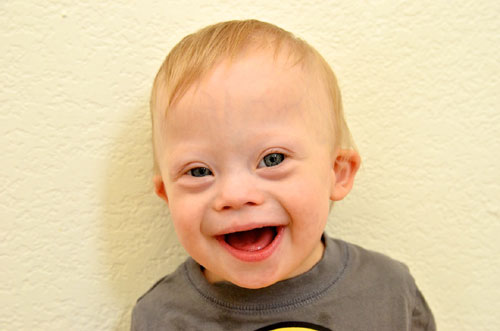
Causes, incidence, and risk factors
Autism is a physical condition linked to abnormal biology and chemistry in the brain. The exact causes of these abnormalities remain unknown, but this is a very active area of research. There are probably a combination of factors that lead to autism.
Genetic factors seem to be important. For example, identical twins are much more likely than fraternal twins or siblings to both have autism. Similarly, language abnormalities are more common in relatives of autistic children. Chromosomal abnormalities and other nervous system (neurological) problems are also more common in families with autism.
A number of other possible causes have been suspected, but not proven. They involve:
- Diet
- Digestive tract changes
- Mercury poisoning
- The body’s inability to properly use vitamins and minerals
- Vaccine sensitivity
Symptoms
Most parents of autistic children suspect that something is wrong by the time the child is 18 months old and seek help by the time the child is age 2. Children with autism typically have difficulties in:
- Pretend play
- Social interactions
- Verbal and nonverbal communication
People with autism may:
- Be overly sensitive in sight, hearing, touch, smell, or taste (for example, they may refuse to wear “itchy” clothes and become distressed if they are forced to wear the clothes)
- Have unusual distress when routines are changed
- Perform repeated body movements
- Show unusual attachments to objects
The symptoms may vary from moderate to severe.
Communication problems may include:
- Cannot start or maintain a social conversation
- Communicates with gestures instead of words
- Develops language slowly or not at all
- Does not adjust gaze to look at objects that others are looking at
- Does not refer to self correctly (for example, says “you want water” when the child means “I want water”)
- Does not point to direct others’ attention to objects (occurs in the first 14 months of life)
- Repeats words or memorized passages, such as commercials
- Uses nonsense rhyming
Social interaction:
- Does not make friends
- Does not play interactive games
- Is withdrawn
- May not respond to eye contact or smiles, or may avoid eye contact
- May treat others as if they are objects
- Prefers to spend time alone, rather than with others
- Shows a lack of empathy
Response to sensory information:
- Does not startle at loud noises
- Has heightened or low senses of sight, hearing, touch, smell, or taste
- May find normal noises painful and hold hands over ears
- May withdraw from physical contact because it is overstimulating or overwhelming
- Rubs surfaces, mouths or licks objects
- Seems to have a heightened or low response to pain

Play:
- Doesn’t imitate the actions of others
- Prefers solitary or ritualistic play
- Shows little pretend or imaginative play
Behaviors:
- “Acts up” with intense tantrums
- Gets stuck on a single topic or task (perseveration)
- Has a short attention span
- Has very narrow interests
- Is overactive or very passive
- Shows aggression to others or self
- Shows a strong need for sameness
- Uses repetitive body movements
HOMEOPATHY : we have observed encouraging results in autism children when treated with homeopathy for over six months. The treatment may require to be continued for over one year, depending on the severity of the presentation. Homeopathy is effective,safe and non addictive.
What are learning disabilities?
Learning disabilities are neurological differences in processing information that severely limit a person’s ability to learn in a specific skill area. That is, these disorders are the result of actual differences in the way the brain processes, understands, and uses information. Everyone has differences in learning abilities, but people with learning disabilities have severe problems that persist throughout their lives.
Learning disabled people may have difficulty in school or on the job. These disabilities may also impact independent living and social relationships.
Learning disabilities are usually first noticed when children begin to fail in school. Parents and preschool teachers are often the first to see early signs of learning disabilities. Children may have difficulty learning basic skills in reading or understanding reading. Difficulty writing, math, or language may also signal a problem. Some students may easily learn basic skills but have difficulty applying skills in problem solving or higher level school work.
Homeopathy offers excellent medication to help children with learning difficulties.





